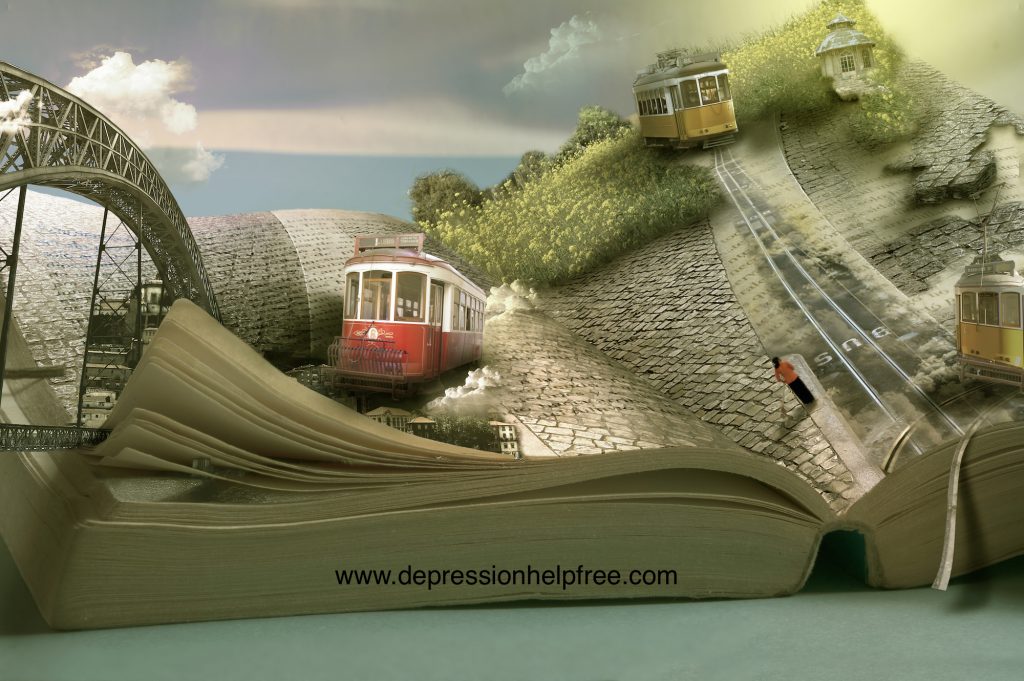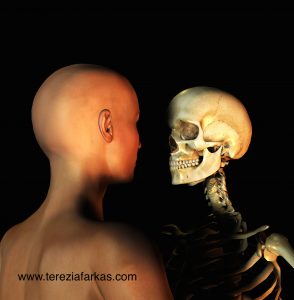Everyone has a personal story. A story of “I” and “Me”. Groups want your story to blend into their story of “We” and “Us”. But everyone is unique. Sometimes, you simply can’t blend in.
The basis for any relationship is the exchange of stories.
Nothing is black or white. Everyone has the responsibility to listen and reflect on each other’s story. Why? Personal stories make up the group story. Blending personal and group stories builds a safe communication space, and a relationship of respect and inclusiveness.
For example, you’re depressed because you’re transgender. Your personal story of “who I am” isn’t what’s making you depressed. It’s the group story of “what I should be” and the “us versus them.” If only the group would listen respectfully and engage in a conversation of inclusiveness, your life would feel a whole lot easier to live.
Stories are the essence of life
My personal story is my narrative of my life. It’s the story I tell myself over and over, of who I am and what I can become. Sometimes it’s true. Sometimes it’s twisted by lies I tell myself. Other times it makes no sense. That’s okay. It’s me trying to make sense of myself, the world, and the universe. It’s the essence of life, of the meaning of why I exist.
My personal story is the foundation of my mental health. I’m depressed. It’s important for my recovery to tell my story over and over. To get it out there in the open, out from the dark corners of my mind. When my personal story doesn’t match or fit in with the group story, problems and conflicts arise. That’s when I lose hope, or don’t believe there’s anyone out there to help me.
Personal stories aren’t group stories
Personal stories are just that – personal. It’s about you. It’s what you believe, understand, know, and are. It’s your past revealed in present you. It’s the hopes and dreams you have for your future. It’s your gender, sexual orientation, race – things that are part of you but which others label, judge, and try to control.
Group stories, on the other hand, are the stories of a group of people. It’s a whole bunch of personal stories linked together by common threads. That’s the key – common threads. For example, Aboriginal Natives and African Americans both have histories of racism, discrimination, violence and abuse. These are the common threads. But the personal stories of each group are different. Personal stories make up the fabric of each group. In the end, the collective experience of each group is different because each group endured similar experiences differently.
When your personal story doesn’t fit in with the group
Personal stories don’t have to fit in with the bigger group. That’s something taught by the group to keep control and a certain homogenous flavour. But everyone is unique. So when your personal story doesn’t match the group’s story, you stand out. You’re labelled as different, broken, or wrong. So you try to fit in. You hide your personal story. You hide “Me.”
But the story of “Me” doesn’t need to hide. “I” can find support groups inside the bigger group. Depression forums where people safely and openly talk about their experiences. Support groups, peer counselling – these groups connect me with people who have similar personal stories. I realize that I’m not alone. That my story matters.
Connecting head and heart
The exchange of stories brings about respect and inclusiveness. When you listen to someone’s story, you need to hear what is being said. Nothing is black and white. You need to open your heart and soul to the person. That’s the most profound way of learning, of bringing relationships into your life, because what you understand of the person’s story is connecting your head with your heart.


